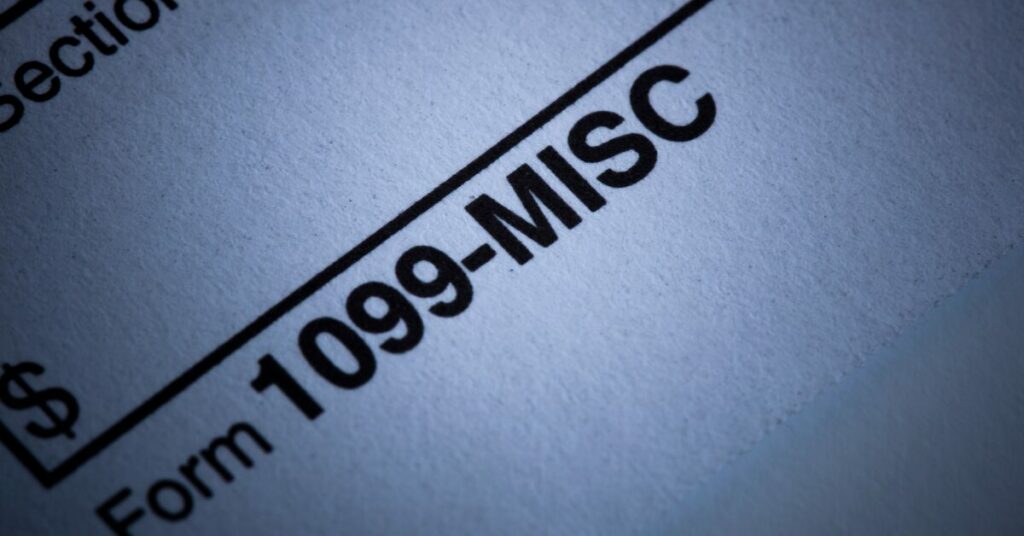Everything You Need To Know About IRS Form 1099
Daniel Miller

Form 1099 is something a taxpayer must fulfill to report their non-employment income. Since there are many ways to earn income outside of work, the IRS details what you need to submit. It is another thing to fulfill, but the IRS requires these documents to match your other taxes. If they don’t match and they find a discrepancy, you can end up paying more than you’d like because of fines.
What Income Counts Under Form 1099?
There are three categories of payments that count under the 1099 form. These are:
- $10 in broker payments or royalties. These count in place of tax-exempt interest and dividends.
- Any direct sales of consumer products that are at least $5,000 in value.
- At least $600 in many categories.
The $600 categories can be any of the following:
- Cash payments from contracts, including freelance work, partnerships, estate, and catching fish.
- Health care payments
- Rent
- Prizes
- Attorney payments
- Crop insurance
The latest change among these would be the inclusion of independent contract work and freelancing. As long as you earned over $600 in payments, you’ll have to report it through 1099.
While it is necessary to file form 1099, it doesn’t necessarily mean that you’ll pay taxes on the earnings. If you report any losses or deductibles, they may even reduce tax. The most important thing here is that the IRS knows your other sources of income so that you avoid any conflict with them later on.
Different Types of 1099 Forms
There are different types of 1099 forms to fill in depending on what income you need to report. Here are the ones you are likely to encounter:
- 1099-A: Partial or fully canceled mortgage. These include a home’s short sale.
- 1099-B: Numerous securities and bartering.
- 1099-C: Any credit card settlement at a lower amount.
- 1099-G: Money received from the government, including any tax refunds. It includes money you get as support when unemployed.
- 1099-Q: Report on a 529 account for a child’s tuition. Earnings on this aren’t taxable, and this is mainly for recording.
- 1099-R: Retirement plans, pensions, and any profit-sharing program.
- 1099-S: Real estate sales or exchange.
- 1099-CAP: Corporate stock, cash, or property you acquired.
- 1099-DIV: Dividends you received.
- 1099-INT: Interest from any financial institution amounting to more than $10.
- 1099-LTC: Long term care insurance benefits
- 1099-NEC: Freelance or self-employed income
- 1099-OID: Bonds or other instruments
- 1099-PATR: Patronage dividends from a co-op amounting to at least $10
- 1099-SA: Health savings account distributions
- 1099-MISC: For any income that doesn’t fit into the above categories.
Reporting Form 1099
If the income you get falls above the $10, $600, or $5,000 threshold, you have to submit the form. The deadline for submitting 1099s is January 31 every year. You’ll have to mail them in before that date.
In case your 1099 doesn’t arrive in time, you’ll still have to keep a record so that you can pay complete taxes. The IRS holds you responsible for paying any taxes. If you don’t pay, you may receive a letter from the IRS detailing what you owe along with some additional fees if the payment is late. You cannot trust that the letter might arrive on time, so it pays to be diligent.
If you submit a form 1099 with errors, don’t lose hope. You may still report and correct anything you find. For example, you received a form 1099 for $10,000 worth of goods when the actual transaction only accounted for $8,000. Fixing this can help you save significantly on taxes.
Of course, all this can be overwhelming. You may not be able to keep up with every source of income, especially if there are many sources. One of the ways to alleviate the burden is to hire a tax professional. They can help you check if you missed any details crucial for your filing.
Want To Learn More?
Taxes and managing your income can be tedious. It can get confusing as there are so many things you need to stay on top of. If you want to build a solid foundation to get your finances handled, check out Wealtheo’s courses. Our personal finance fundamentals courses can help you, from wealth-building to debt management and more.
Related Articles
How To Quickly Improve Your Credit Score
Bad credit can lead to plenty of issues. It can make it difficult to get a loan, rent an apartment, or even get a job. ...
Read More
Is Debt a Sign of Failure?
Debt is a tricky topic. Some people see debt as a sign of failure, while others see it as an opportunity to invest in something ...
Read More
How To Set and Reach Financial Goals
When it comes to your finances, you would likely love to be in a much better place. But, if you’re honest with yourself, you often ...
Read More







